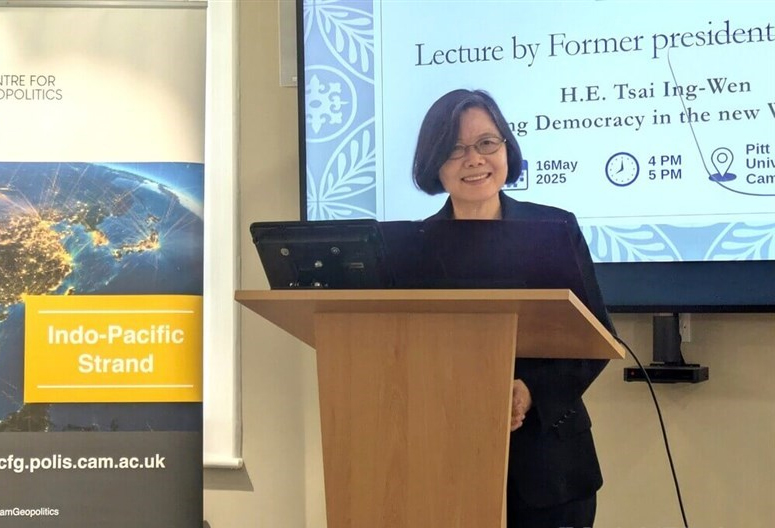In a compelling address at the University of Cambridge’s Centre for Geopolitics, former Taiwanese President Tsai Ing-wen emphasized the urgent need for democracies worldwide to unite against the escalating threats posed by authoritarian regimes. Her speech, titled “Defending Democracy in the New World Order,” was delivered on May 16, 2025, during her European tour, which also included visits to Lithuania and Denmark.
The Super Year of Elections and Democratic Challenges
Tsai highlighted 2024 as a “Super Year of Elections,” with over 70 countries holding national votes. She noted that the outcomes have led to significant shifts in leadership and legislative dynamics, introducing uncertainty in the global democratic landscape. “All the assumptions about alliances and the role of major powers are now being called into question,” she remarked, underscoring the fluidity and unpredictability characterizing current international relations.
Authoritarian Regimes: Adaptive and Expansionist
Drawing attention to the growing confidence and adaptability of authoritarian regimes, Tsai warned that these governments are not only consolidating power domestically but are also collaborating internationally to advance expansionist agendas. She stated, “Their leaders are now convinced that they are more adaptive to change,” highlighting the strategic adjustments authoritarian states are making to exploit democratic vulnerabilities.
Taiwan’s Resilience and Democratic Fortification
Reflecting on Taiwan’s own experiences, Tsai detailed the measures taken during her presidency to bolster the nation’s defense and democratic institutions. These include an over 80% increase in the defense budget, enhanced combat training, and significant investments in digital infrastructure to counter cyber threats. She emphasized Taiwan’s collaboration with the United Kingdom on strategic communication as a critical component in combating foreign information manipulation and interference.
The Role of Democracies in Collective Security
Addressing the shifting dynamics of international alliances, Tsai interpreted U.S. President Donald Trump’s calls for allies to assume greater security responsibilities as a prompt for democracies to intensify their collaborative efforts. “The collective security in the Indo-Pacific and Europe… became even more critical to global peace and security,” she asserted, advocating for a more integrated and proactive approach among democratic nations.
Taiwan’s Commitment to Democratic Values
Tsai reaffirmed Taiwan’s dedication to upholding democratic principles, stating, “In Taiwan, we know what resilience looks like, because we understand all too well the danger posed by those who seek to exploit democracy’s imperfections.” She positioned Taiwan as a willing partner in the global effort to reinforce democratic resilience, drawing from its history of overcoming authoritarian rule and ongoing challenges posed by external pressures.
FAQs
What was the main message of Tsai Ing-wen’s speech at Cambridge?
Tsai Ing-wen emphasized the necessity for democracies to unite against the rising threats of authoritarian regimes, highlighting Taiwan’s experiences and measures taken to strengthen its democratic institutions.
How has Taiwan responded to authoritarian pressures?
Taiwan has increased its defense budget by over 80%, improved military training, and fortified its digital infrastructure to counter cyber threats, demonstrating resilience against authoritarian intimidation.
What is the significance of the “Super Year of Elections”?
The term refers to the unprecedented number of national elections held in 2024, leading to significant shifts in global democratic leadership and introducing new challenges in international relations.
How does Tsai view the role of the U.S. in global security?
Tsai interprets the U.S.’s call for allies to take greater security responsibilities as a prompt for democracies to enhance their collaborative efforts in maintaining global peace and security.
What partnerships has Taiwan formed to strengthen its democracy?
Taiwan has collaborated with countries like the United Kingdom on strategic communication and digital infrastructure to counter foreign information manipulation and reinforce democratic resilience.


